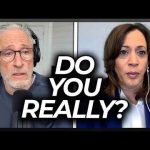President Trump’s decision to relist Nigeria as a Country of Particular Concern and to publicly threaten to cut aid — even ordering the Pentagon to prepare for possible action — is the kind of clear, unblinking leadership this country sorely needs when innocent Christians are being butchered with impunity. He didn’t whisper; he called out the truth and put the full weight of the United States on notice that religious cleansing will not be ignored.
Washington’s legal framework for this is straightforward: the International Religious Freedom Act requires America to name and respond to governments that tolerate “systematic, ongoing, and egregious violations” of faith-based freedoms, and watchdogs have long flagged Nigeria’s omission from the list as inexplicable. For years the Biden State Department downplayed or omitted Nigeria even as bipartisan watchdogs and members of Congress demanded accountability, leaving persecuted Christians without a meaningful American advocate.
The facts on the ground are grim and demand action from people who value life and liberty. Credible reporting and independent NGOs document staggering numbers of Christian civilians killed and churches destroyed across Nigeria, evidence that this is more than isolated criminality — it is a pattern of targeted violence. Americans who care about religious liberty cannot pretend this is someone else’s problem.
Conservatives should be unapologetically proud that a president is finally willing to translate principles into pressure. Where the last administration offered excuses and equivocation, this administration has drawn a red line: protect your people or face consequences. That kind of foreign-policy muscle sends a message to tyrants and cowards everywhere that America still stands with the oppressed.
The president’s blunt language — telling the world he’s ordered the Department of War to prepare and warning of swift action if Nigeria doesn’t act — may ruffle diplomatic feathers, but it also cuts through the fog of spin that so often buries human-rights crises. When bureaucrats and diplomats hide behind careful phrasing while churches burn, rhetoric won’t save lives; decisive posture and the threat of real consequences just might.
That doesn’t mean we should fetishize intervention or ignore the complexities of Nigerian politics; it means we should stop pretending the problem doesn’t have a religious dimension and start using every tool to protect the vulnerable. Cutting aid, targeted sanctions, law-enforcement cooperation, and backing civil-society groups on the ground are common-sense steps that align with both moral clarity and American interests. Congress and the American people should back a president who finally insists that religious liberty is non-negotiable.
To the Christians in Nigeria and to every patriot at home: this country was founded on the idea that liberty includes the freedom to worship without fear. We must hold our leaders accountable to that standard, support policies that protect the persecuted, and refuse to let cynical diplomacy or partisan soft-peddling drown out the cries of the innocent. The president has started the hard work of telling the truth — now Washington must follow through.




